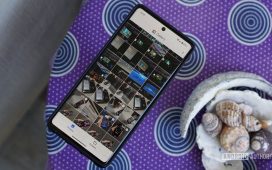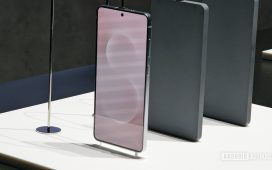A recent rumor from Digital Chat Station on Weibo claims that for the upcoming iPhone 17 Pro series, Apple could actually “downgrade” the camera by giving it a smaller camera sensor. But, is it really that big of a deal?
A smaller sensor
Apple will use a 48MP 1/1.3-inch sensor for the primary camera of the iPhone 17 Pro, according to the post. This setup includes a 48MP ultrawide angle camera and a 48MP periscope lens with 5x optical zoom.
For context, the current iPhone 16 Pro models feature a 1/1.28-inch sensor. It can be confusing that 1/1.3 inches is labeled as “smaller” than 1/1.28 inches. These numbers represent the type of sensor rather than its physical dimensions.
However, the difference is negligible. Apple isn’t switching from a 1-inch sensor to a 1/1.3-inch sensor. However, this does beg the question: why is Apple opting for a smaller camera sensor in the iPhone 17 Pro models?
For those following the iPhone 17 rumor mill, you might remember that Apple could introduce a new camera bump design. This design could result in space constraints, and as a result, force Apple to use a smaller sensor.
Why a larger sensor matters
Many smartphone manufacturers focus on the megapixels of their cameras because they can boast “larger” numbers. This makes their products more appealing in terms of marketing materials. However, it would be incorrect to say that megapixels are just marketing hype.
There are other aspects of a camera that can contribute to its overall capabilities and quality.
One aspect is the physical size of the camera sensor. While megapixels relate to the image’s resolution, the sensor size determines how much light the camera gathers. A larger sensor has a greater surface area, allowing it to collect more light.
Light plays an essential role in the quality of an image. More light means the camera captures more data, resulting in greater detail, especially in low-light environments. A larger sensor can gather more data even in these conditions, leading to photos with less noise, more clarity, and thus more detail.
So, is Apple actually downgrading the cameras on the iPhone 17 Pro? From a sensor standpoint, that might seem like the case. However, there are other camera aspects such as software and lens aperture, that can impact image quality. So even with a slightly smaller sensor in the iPhone 17 Pro, Apple could compensate for it with software.
It remains to be seen if these changes will have a negative impact on the overall image quality, but honestly, we think that most people probably wouldn’t be able to tell the difference.









